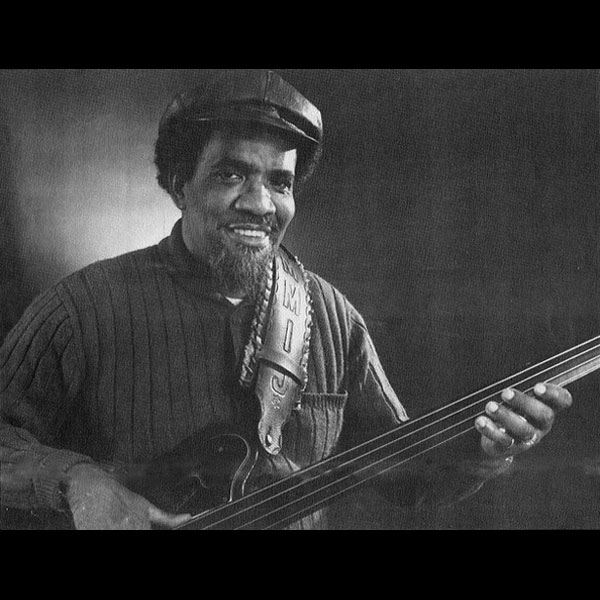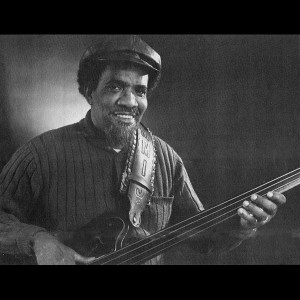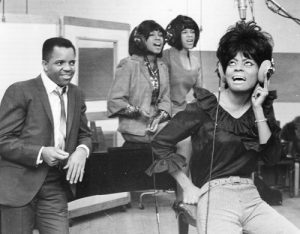Player bio, photos, videos, music, and more
From imageevent.com (full imageevent.com link):
James “Jimmy” Garrett
1927 ~ March 5th 1993
James Garrett was the music director and road bassist with the Supremes who helped them develop from a narrow rock style into the top female group in popular music history. Mr. Garrett, 66, died of complications of diabetes in Teaneck, N.J. He is survived by his wife, a son James of Ontario, Calif.; daughters, Shirley Jackson and Anita of Cleveland and Grace of Dover, Del.; two sisters; three brothers; nine grandchildren; and seven great-grandchildren.
Jimmy was born in Cleveland and spent part of his childhood in Detroit and Chicago. He played in the band at old Central High School and studied at the Cleveland Institute of Music. He also attended military music school and played with a Navy band in Washington, D.C., during World War II. After the war Jimmy played with blues man Robert Lockwood Jr. and studied with many top jazz bass players, including the legendary Oscar Pettiford. During the 1950s, he played in leading Cleveland jazz clubs including the Tia Juana, Town Casino and Cedar Gardens. He accompanied and traveled with top musicians, including Charlie (Yardbird) Parker, John Coltrane, Dizzy Gillespie and Billie Holiday. He played with Ray Charles at a bar near Mr. Garrett’s home at E. 69th St. and Cedar Ave. While in New York City in 1961 his future wife, Ella, hired him to back her while she sang at the famed Small’s Paradise in Harlem. “He also played with Count Basie every Sunday and whatever bass players were in town came just to watch him work,” Ella Garrett said. Jimmy Garrett joined Motown records in Detroit in 1962 and played with such greats as Marvin Gaye, Stevie Wonder, the Temptations, George Benson, the Four Tops and Smokey Robinson. He was named music director of the Supremes while on tour with them in England. “Earlier directors had lacked his training and did not provide the versatile arrangements that Mr. Garrett did”, his wife said. He also set trends in stage appearance when he arrived at Motown, she said. “He had a beard, but (Motown founder) Berry Gordy told him he had to shave. He said he would quit first.



